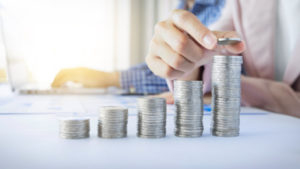9 December 2020|Latest Posts, Marketing, PR, Promotion

By Dan Gable. Over the past few years, the term influencer has blown up and it’s clear that influencer marketing is here to stay. But what’s next for the influencer in an increasingly oversaturated market?
It’s important firstly to clarify what we mean by the term ‘influencer’. The term influencer is attributed to online entertainers who have a large social following, but we are all influencers, and a large audience is often confused with influence. Real influence can be thought of as someone who causes others to make specific consumer decisions. This can also be referred to as word of mouth marketing. For example, if I tell 10 people to watch a film and they do, then those 10 people tell 10 people, then those people tell more people, each time it goes up logarithmically. In a very short space of time a lot of people will watch the film. Think about how many people you know that would watch a film on your recommendation, because they trust your opinion. That is influence.
The point is valuable influence is a chain, not an announcement of one to many, and people with a big social following don’t necessarily start that chain. The future of influence is advocacy and micro influencers. In other words, normal people spreading the word, scaled on social media. It’s authentic and it works as long as the product or service is good. Going back to the film analogy. If the film is rubbish. The chain stops pretty quickly, and that’s what makes it real and authentic.
There are two models for influencer marketing. The first, enables customers to spread the word about a product or service authentically. This is especially effective with video and is a natural, unpaid version of influence. 89% of millennials trust recommendations from friends and family more than claims by the brand according to Kissmetrics.
Secondly, brands ask people with a large social following to promote their product or service to their audience .This second form of influencer marketing can often be seen as unauthentic and has been more obvious since social channels demanded that influencers clearly signpost paid for promotions.
Where is social influence going?
It may not be long before what we term as ‘influencers’, are as inauthentic as celebrity endorsement when it comes to promoting products and services, we may even be there already. However, there are always opportunities for these online entertainers with a large social following and the ability to engage an audience.
The future could be branded episodic short form social content, hosted by ‘influencers’ and sponsored by just a brand logo or graphic overlay. In other words, the brand facilitates the content as opposed to paying the ‘influencer’ to endorse a product. This is similar to the sponsor bumpers on TV shows. Imagine watching a show like the X Factor where Simon Cowell turns to camera and says ‘I love Dunkin Doughnuts mmmm, tasty, my favourite treat’. It really would not work, however that’s what brands are asking online entertainers to do, and no wonder their credibility is suffering.
According to Hubspot, 84% of millennials don’t trust traditional advertising.
So, what’s next for influencers and the brands that work with them?
Already we are seeing the rise of the cancel culture, for example, Shane Dawson losing millions of followers because of inappropriate posts from his past.
‘Influencers’ need to be selective in their partnerships as one too many product endorsements could see a backlash from fans and an ‘influencer’ fall from grace. It’s important for all ‘influencers’ to keep their content fresh, relevant and authentic and stick to what they are good at, the ability to entertain and inform their audiences.
Influencers should also start looking to the future and how they can remain relevant. One option is to create their own formats like TV has done and also start looking for people to host those formats.
‘Influencers’ are the on-screen talent, but they are also the channel owners. If they just focus on themselves, they are like a media network with one programme and one star. Thinking of themselves as owning a media network, nurturing on screen talent and doing sponsorship deals with brands is a good place to be for those who play it right.
Conclusion
The real power of influence is with micro influencers who do not call themselves influencers and do not view themselves in that way. Micro influencers are not actively seeking a relationship with a brand, they are just spreading the word because they genuinely like the product and service and don’t really want anything in return. This is real influence. What we currently call an influencer is something different as it is more transactional and, in fact, they should not be thought of as influencers because in a lot of instances they are not. This is not to diminish what they do, quite the opposite. It’s to say that many are more than just vehicles to promote a product.
The future for brands is to help facilitate multiple clusters of micro influence by encouraging and enabling advocacy. This is about brands finding ways for genuinely happy customers to shout out about what they love, especially with video on social media.
That means forming deeper relationships with customers and using technology to enable advocacy to take place. Organic content created by customers that starts a chain reaction is where the real power lies.
About the Author:
Dan Gable is the founder of ShoutOut, the ground-breaking automated video creation and distribution platform. ShoutOut enables you to create branded videos and distribute them to your social media channels in just one click. Over the last 35 years, Dan has worked on hundreds of TV programmes including pioneering shows such as The Word, The Brit Awards, Big Brother and Top Gear. He has shot and directed many corporate and music videos and has been on the board of various media companies including Air Studios and Co-Founder of Resolution, who pioneered nonlinear editing in TV production and, at its peak, had over 100 edit suites in London. Dan is also a qualified Master NLP Practitioner, Hypnotherapist and Counsellor and is a well-known figure in the television industry – being nominated for a BAFTA in 2002.
Dan brings his filmmaking, production workflow and business experience to ShoutOut and is passionate about making quality video available to everyone.
https://www.linkedin.com/company/shoutoutsocial
https://www.facebook.com/shoutoutvids/
https://www.instagram.com/shoutout.social/
- lisafoundersitehttps://thesuccessfulfounder.com/author/lisafoundersite/
- lisafoundersitehttps://thesuccessfulfounder.com/author/lisafoundersite/
- lisafoundersitehttps://thesuccessfulfounder.com/author/lisafoundersite/
- lisafoundersitehttps://thesuccessfulfounder.com/author/lisafoundersite/






